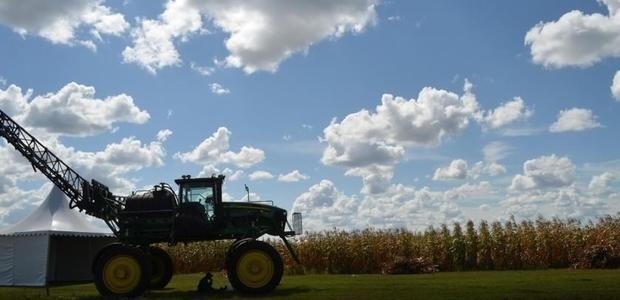advertisement
Zambia Agritech Expo partner speaks on country’s future prospects in agriculture
“It is an over-worn cliché to say that Zambia will one day become the ‘bread basket’ of the region but…

“It is an over-worn cliché to say that Zambia will one day become the ‘bread basket’ of the region but there is no doubt that, despite of current challenges, the future of Zambia’s farmers, both small and large scale, as suppliers of food products to the region and as drivers of Zambian economic growth is very positive,”
This is according to Rob Munro, Director of Strategy at Musika, a Zambian non-profit company that works to stimulate private sector investment in the smallholder market. Musika is a key partner in the upcoming Agritech Expo, which CIO East Africa recently reported, is expected to welcome some 15,000 farming professionals, from emerging, to small holder to commercial farmers, and agri experts, at the GART Research Centre in Chisamba from 14-16 April.
Agritech Expo is owned by the ZNFU (Zambia National Farmers Union) and last year’s second edition drew more than 11 700 visitors, over 100 exhibitors and 150 members of the press. VIP visitors included the country’s President Edgar Lungu, the Vice President, Mrs Inonge Wina, the Zambian and German Agri Ministers and many other dignitaries and agri experts.
advertisement
Good news for Zambia
Musika’s Rob Munro states: “Zambia is struggling with a number of difficult macroeconomic challenges at the moment, a power shortage and a drought, all of which affect the farming economy as much as, if not more than, the rest of the business sector. But while the short term picture is quite tough for Zambian agriculture, there is certainly good news at the ‘big picture’ level – Zambia still has plenty of land and water, a stable political environment and a highly resilient, resourceful and diverse farming community. In an age where food is in ever increasing demand locally, regionally and globally, Zambia is in a good position to take full advantage of its agricultural assets in the future.”
Immediate challenge is the drought
He continues: “The most obvious and immediate challenge is the drought that is affecting many parts of the country which will undoubtedly affect yields and agricultural income, which in turn limits the ability of farmers and agribusiness to invest in the growth of the sector.” Last year, Rob was quoted as saying that unpredictable agricultural policies, particularly on grain marketing, also constrain the growth of the sector and affect investor confidence. However, at the start of the New Year, he feels that “While the challenges remain, the direction of travel on this I think is certainly positive.”
With regards to the current drought conditions, Rob adds that “There has been strong collaboration between public and private sectors on making farmers – particularly smallholder farmers – aware of the impending drought and advising on risk mitigation practices such as planting short season or drought tolerant crop varieties. A particularly good example is the Ministry of Agriculture facilitating the integration of commercially available weather insurance into its innovative ‘e-voucher’ scheme for the delivery of its Farm Input Support Programme through private sector input supply channels.”
advertisement
Limitless opportunities
Various local suppliers to the agri sector agree with Rob’s optimistic outlook for Zambia. “The agricultural sector in Zambia is a dynamic sector,” says Pierre Lombard, CEO of NWK Agri-Services in Zambia, “It has its ups and downs. However, it remains one of the main contributing sectors to Zambia’s GDP. What makes it exciting is the interest people and companies have in the country and the opportunities to expand and improve on current activities.”
He adds: “There are thousands of small scale and emergent farmers contributing to the majority of the agricultural output. With help and guidance, they have the potential to grow and increase their contribution and therefore contribute to the development of the agricultural sector as a whole. In short, agricultural opportunities in Zambia are limitless.”
With regards to the drought that Zambia is currently facing, NWK’s Pierre Lombard says: “If the country allows for free trade in imports and exports and stability as well as free floating in the Zambian currency it will mitigate any yield loss by a possible increase in price.”
advertisement
“Zambia is endowed with a large land resource base of over 40 million hectares of arable land,” says Michael Bentley, Dealer Principal, Action Auto in Zambia. He adds: “And the country is abundant with water resources having 40 per cent of the water in Central and Southern Africa. This means Zambia has unimaginable opportunities for food production to feed the entire sub-Saharan region!”
Susan Mennell, Managing Director at CFAO Zambia Limited, says “With the poor copper prices and mine closures Zambia is going to look to the agricultural sector for more exports. Zambia is able to produce excellent crops and excesses can be exported.”